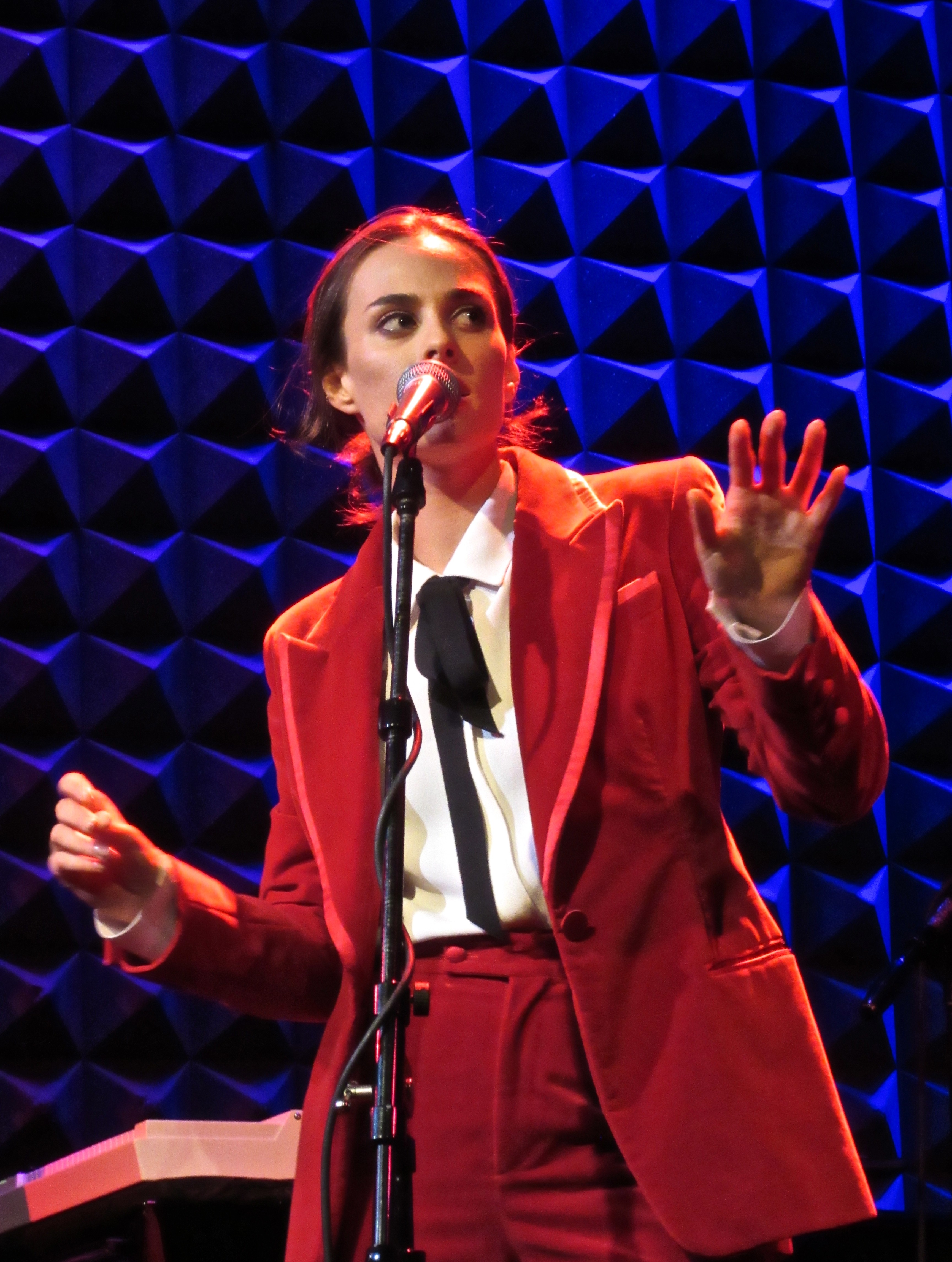The personae of Sophie Auster are ever shifting, and she unites them in a persona that avoids the fatal stamp of a changeless character. To appreciate her in performance is to grasp the fluidity of the shifts and the constancy of what ties them together. She projects herself physically and visually, and who she becomes is inseparable from the poetry of her voice and the glamour of her song.
Her eyes have the clarity of stars in ebony: they could be seen from the depth of a well or the top row of a stadium (Martha Graham had such eyes, the time I saw her, ancient and stooped, take a bow with her company). The exquisite fingers and fine articulation of her joints are vibrantly, electrically responsive. She bobs to the music, hits the beat with a sharp, sudden freeze, then another bob, and another freeze. A smidgen less controlled, it would look like twitching, a tad more, like a robot: she connects like copper to the jolt of the lyric and the voltage of the tune. In the instant of the freeze the black light of her eyes is at its clearest and most assertive, like the accusation of a glance.
At Joe’s Pub on Tuesday night, Auster released a CD called Dogs and Men, showing up in an eccentrically mannish outfit that she described, pleased, as “Jim Carrey” or “Willie Wonka.” The Valentine-heart dip of her upper lip (which causes the illusion of a gap in her front teeth) and the pulled-back hair added to the effect. It might have been gender-bending, but coming from her was more about the fluidity and allusiveness of personae. She is, as singer and narrator, protean: in song, full, glamorous, now and then angry; between songs, small-voiced, modest, a little giggly. There is, in the contrast, something winning, a poetics of emotion that exploits the need in the listener for moments of emotional recovery, breathers among epiphanies.
Such they were. Each song was a realization, and a high point. Her voice is relentlessly surprising, shimmering with folk, blues, concert rock, and cabaret. She fills up lyrics like balloons, every word a bubble of meaning, smart in the way that denies distinction between thought and feeling, impulse and its enunciation. She sang mostly from the eleven songs on Dogs and Men; there is love in her universe, and pain, anger, and guilt. Her words are an intelligible poetry, of the eye and what it sees. She is aware of birds, and the sky, and the colors of a town, however dingy, and the eyes of others, including the liquid plea of a beloved dog. Something in her voice prompts synesthesia: her lyrics are, in their writing, expert, in their singing, polished like silver.
Some, but only some, of the impression she made can be glimpsed in her videos, or intuited from her recordings. Her playfulness with personae is explicit in the video of “Bad Manners,” the first track on Dogs and Men. There is a video of the concert already posted by Joe’s Pub, but I cannot say it conveys her, not the dance of her joints nor the house-filling sheen of her voice. It was the sort of performance that stops hearts, like the sight of a falling, or should I say rising?, star.
For more on Sophie Auster, visit her here. For upcoming events at Joe’s Pub, click here.
